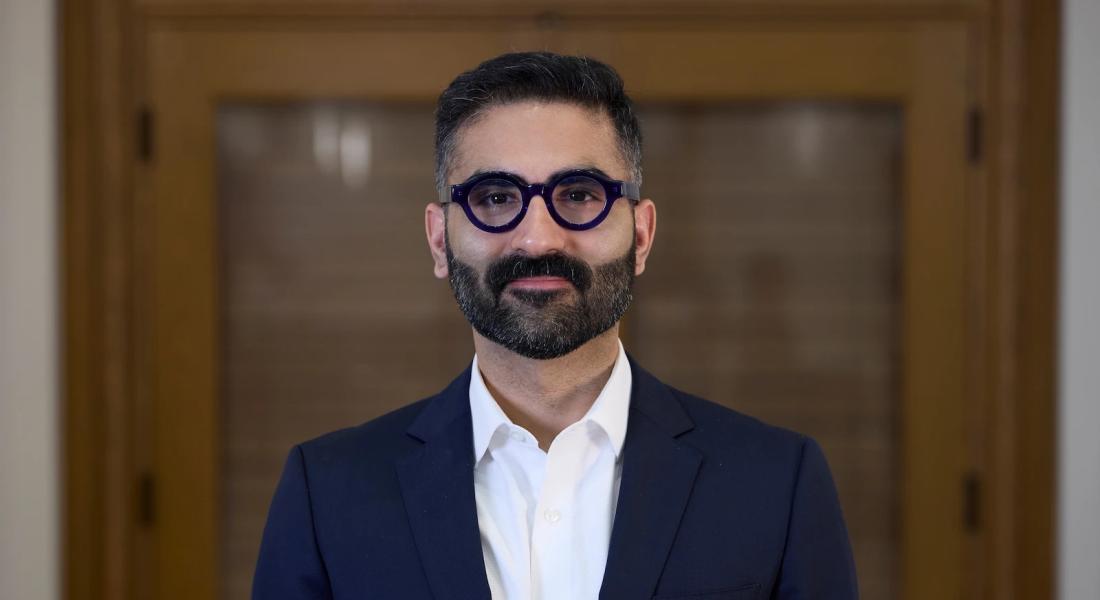
Saad Gulzar brings a sharp empirical lens to pressing questions about how governments function—and how they can work better for those they govern.
A scholar of political economy and development, Gulzar has joined the Keough School as an associate professor of political science and global affairs.
Gulzar, who holds a joint appointment in the Department of Political Science within the College of Arts and Letters, studies the mechanics of government performance — in particular, the way politicians and bureaucrats in South Asia and Latin America manage large-scale public programs. His work integrates themes of political representation, bureaucratic incentives, and increasingly, environmental governance — areas where his research has generated policy-relevant insights in addition to appearing in top peer-reviewed journals.
Governments that work for people
At the core of Gulzar’s research is a question that sounds deceptively simple: How can governments better serve the people they govern?
“I’m interested in how large-scale government programs can be improved,” said Gulzar, who is affiliated with the Notre Dame Democracy Initiative. “Who staffs them? What motivates people who work in government? How do the structures and incentives of a public administration influence the outcomes that affect people’s daily lives?”
These inquiries have led Gulzar to work closely with public sector organizations, politicians and bureaucratic agencies in countries such as Pakistan, India, Nepal, and more recently, Colombia. Much of his research relies on partnerships with government entities and the use of large administrative datasets, allowing him to find empirical patterns that have real-world consequences.
Gulzar’s recent study “Good Politicians,” published in “The Review of Economic Studies,” examined the individuals who run for public office and what motivates their political ambitions. The research focused on whether encouraging pro-social individuals—those motivated by public good rather than personal gain—to enter politics leads to better governance.
“Pro-social people don’t often run for office under the status quo because politics is generally perceived as a domain for the self-interested,” Gulzar said. “By opening opportunities for pro-social people to run, we can not only allow voters to put them in office, but also reduce the gaps that often exist between what governments do and what ordinary citizens prefer.”
Examining environmental governance
Gulzar’s recent work has turned toward a growing global concern: environmental degradation.
“Shifting my research to environmental governance came naturally,” he said. “It still fits my core interest—understanding how governments affect people’s lives. But the urgency is greater now. Air pollution, deforestation—these are immediate, life-threatening issues.”
In one recent study published in Nature, Gulzar studied how local bureaucrats in South Asia respond to the problem of crop burning—a leading cause of hazardous air pollution. He discovered that bureaucrats became significantly more responsive when their own jurisdiction faced the brunt of pollution: crop burning decreased by around 15 percent when winds would carry smoke to bureaucrat’s own constituents. The implications of this research, also published as a Nature policy brief, are far-reaching, Gulzar said.
“It shows that bureaucratic attention can be redirected through better incentives, even in low-capacity settings,” he said. “And it connects very directly to public health—child and infant mortality, maternal health, even long-term economic productivity.”
Gulzar’s interest in environmental issues is also personal: he grew up in Lahore, Pakistan.
“When I go back home, I get headaches from the pollution,” he said. “Everyone’s coughing, taking aspirin. It’s affecting millions and cutting years off lives. Yet there’s so little public outcry.”
This silence, Gulzar believes, reflects a political failure as much as a policy one. “These are not just technical challenges—they’re deeply political,” he said. “Policymakers haven’t confronted the hard questions. Farmers can’t be easily punished for crop burning. They’re poor, and the alternatives are costly.”
A natural fit at Notre Dame
Gulzar was attracted to the Keough School because of its global orientation and also its alignment with his own values as a scholar.
“There’s a lot of energy at the Keough School—it’s a relatively new school with an ambitious vision,” he said. “From my conversations with faculty, it was clear that people were thinking globally. And the mission of Notre Dame—improving people’s lives and connecting research to impact—resonated deeply with me.”
Gulzar also saw common ground between his research and the mission of the Keough School’s Kellogg Institute for International Studies, which he joined as a faculty fellow.
"The Kellogg Institute’s commitment to understanding democracy and human development resonates deeply with my research on how governments can better serve their citizens,” Gulzar said. “As a faculty fellow, I’m looking forward to engaging with a community that values rigorous, policy-relevant research and shares my focus on improving governance and representation in the Global South."
Looking ahead, Gulzar sees exciting developments at the intersection of theory and policy.
“There’s growing interest in the political economy of development—who is running for office, how money influences politics, and how environmental policies are designed,” he said. “I’m particularly excited about using development theory to design smarter policy experiments—ones that are both theoretically informed and practically relevant.”
As the world grapples with both governance crises and environmental threats, Gulzar’s research offers a hopeful, data-driven approach to navigating these challenges.
“Governments can work better,” he said. “We just have to understand how to get the right people in the right roles, and how to motivate them to act for the public interest. That’s where my work will continue to focus.”





